
Volcán: Panama's Highland Gem
Nestled in the highlands of Panama, Volcán is a serene escape known for its cool climate, lush landscapes, and breathtaking views of the Baru Volcano. This charming town is surrounded by rich farmland, where locals cultivate a variety of crops, including the world-renowned Geisha coffee. The crisp air and verdant scenery make it a perfect destination for nature lovers and those seeking tranquility. Adventure enthusiasts will find plenty to do in Volcán. Hiking trails abound, offering routes for all skill levels, from leisurely walks to challenging treks up the Baru Volcano. The area is also a birdwatcher's paradise, with over 400 species to spot. Don't miss the chance to visit La Amistad International Park, a UNESCO World Heritage site that spans the border between Panama and Costa Rica, offering diverse flora and fauna. In addition to its natural beauty, Volcán boasts a rich cultural heritage. Local markets brim with fresh produce, handmade crafts, and traditional Panamanian foods. The friendly community is eager to share their customs and traditions with visitors. Whether you're exploring the scenic landscapes, savoring local delicacies, or simply relaxing in the cool mountain air, Volcán offers a unique and unforgettable experience.
Local tips in Volcan
- Bring layered clothing as the weather can change quickly in the highlands.
- Visit local coffee farms to sample the world-famous Geisha coffee.
- Hire a local guide for the best experience when hiking the Baru Volcano.
- Explore the local markets early in the morning for the freshest produce and best selection.
- Carry cash, as many small vendors and local attractions do not accept credit cards.
Volcán: Panama's Highland Gem
Nestled in the highlands of Panama, Volcán is a serene escape known for its cool climate, lush landscapes, and breathtaking views of the Baru Volcano. This charming town is surrounded by rich farmland, where locals cultivate a variety of crops, including the world-renowned Geisha coffee. The crisp air and verdant scenery make it a perfect destination for nature lovers and those seeking tranquility. Adventure enthusiasts will find plenty to do in Volcán. Hiking trails abound, offering routes for all skill levels, from leisurely walks to challenging treks up the Baru Volcano. The area is also a birdwatcher's paradise, with over 400 species to spot. Don't miss the chance to visit La Amistad International Park, a UNESCO World Heritage site that spans the border between Panama and Costa Rica, offering diverse flora and fauna. In addition to its natural beauty, Volcán boasts a rich cultural heritage. Local markets brim with fresh produce, handmade crafts, and traditional Panamanian foods. The friendly community is eager to share their customs and traditions with visitors. Whether you're exploring the scenic landscapes, savoring local delicacies, or simply relaxing in the cool mountain air, Volcán offers a unique and unforgettable experience.
When is the best time to go to Volcan?
Iconic landmarks you can’t miss
Panamá Viejo
Explore Panamá Viejo, a UNESCO World Heritage site rich in history with stunning ruins and breathtaking views of Panama City.
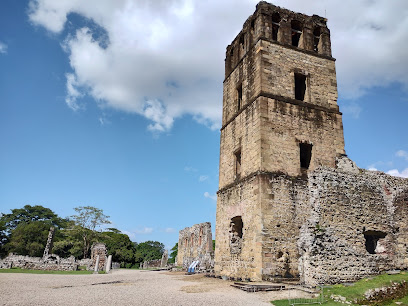
Hotel Bambito by Faranda Boutique, a member of Radisson Individuals
Experience the perfect blend of comfort and nature at Hotel Bambito, your serene retreat in the heart of Chiriquí Province, Panama.
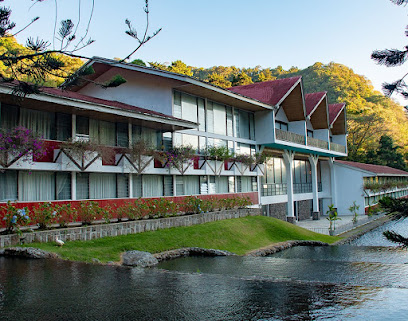
Boquete Tree Trek Mountain Resort
Discover the breathtaking beauty and thrilling adventures at Boquete Tree Trek Mountain Resort in Chiriquí Province, Panama.

Los Cangilones de Gualaca
Experience the breathtaking beauty and adventure of Los Cangilones de Gualaca, a hidden gem in Panama with stunning turquoise waters and lush landscapes.
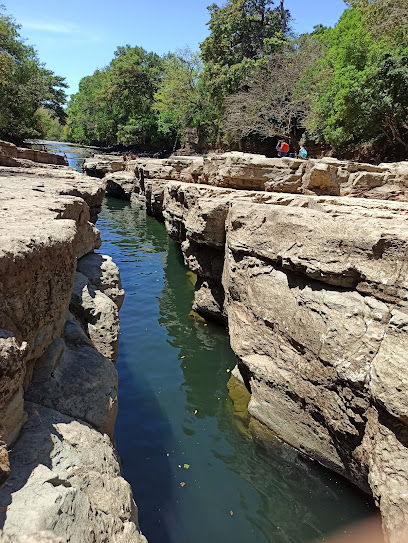
Bambuda Castle
Discover the enchanting Bambuda Castle in Boquete, where medieval charm meets modern comfort amidst breathtaking landscapes and exciting adventures.

San Ramón Waterfall
Explore the breathtaking San Ramón Waterfall in Boquete, Panama, where nature's beauty and tranquility await in a stunning tropical paradise.
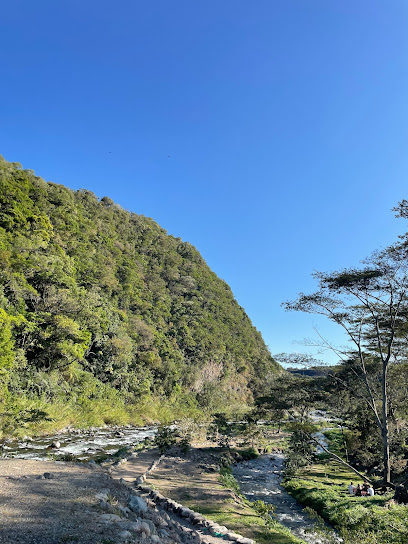
Baru Volcano National Park
Explore the breathtaking beauty and adventure of Baru Volcano National Park, Panama's highest point, with stunning landscapes and diverse wildlife.
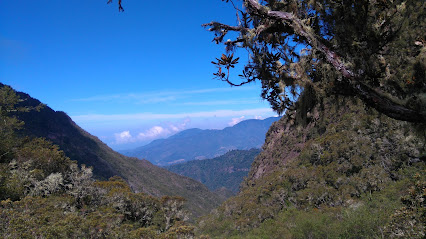
Janson Coffee Shop
Experience the rich coffee culture of Panama at Janson Coffee Shop, where every sip tells a story amid stunning volcanic landscapes.
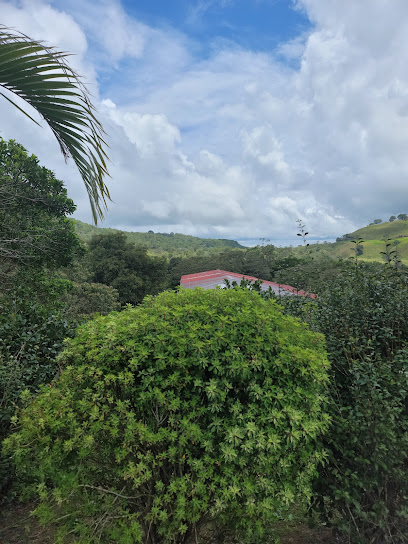
Boquete Bees and Butterflies
Explore the enchanting gardens of Boquete Bees and Butterflies, where nature's beauty meets the sweet taste of honey in Chiriquí Province.
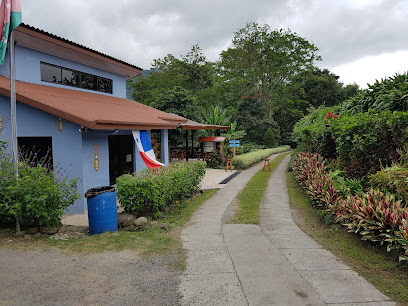
Volcán Barú
Experience the breathtaking beauty and adventure of Volcán Barú, Panama's highest peak, where nature and thrill collide in stunning landscapes.
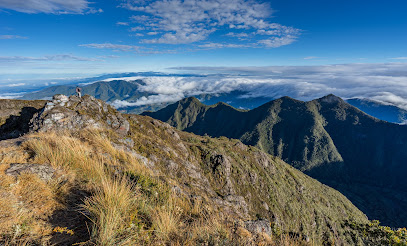
Los Brezos Boutique Hotel
Discover serenity at Los Brezos Boutique Hotel in Volcán, Chiriquí Province – your gateway to nature, adventure, and relaxation in Panama.
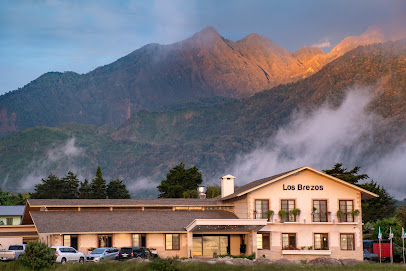
Sitio Barriles
Explore the rich pre-Columbian history of Panama at Sitio Barriles, an archaeological museum nestled in the enchanting Chiriquí Province.
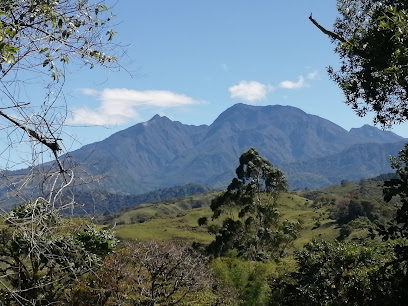
Finca Dracula
Explore the stunning Finca Dracula, a botanical garden and orchid farm in Cerro Punta, Panama, showcasing over 300 species of exotic plants.
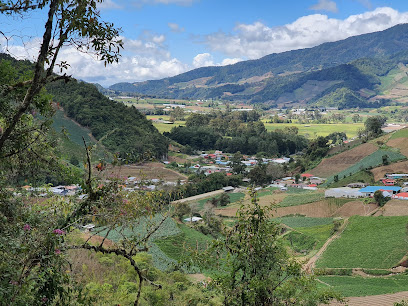
Lost and Found Hostel
Explore the lush landscapes and vibrant community of Lost and Found Hostel in Chiriquí, a perfect retreat for adventure seekers and nature lovers.
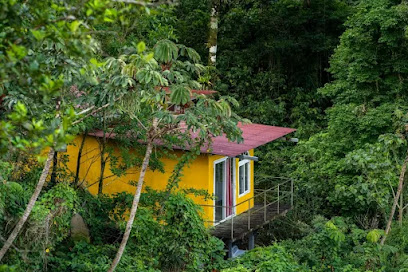
The Lost Waterfalls / Las Tres Cascadas
Explore the breathtaking beauty of The Lost Waterfalls in Chiriquí, Panama, where nature's splendor and adventure await every visitor.
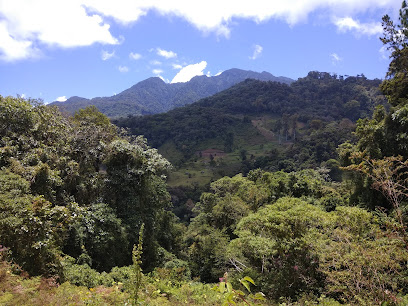
Unmissable attractions to see
Los Cangilones de Gualaca
Discover the breathtaking beauty of Los Cangilones de Gualaca, a stunning natural park in Panama perfect for adventure and relaxation.
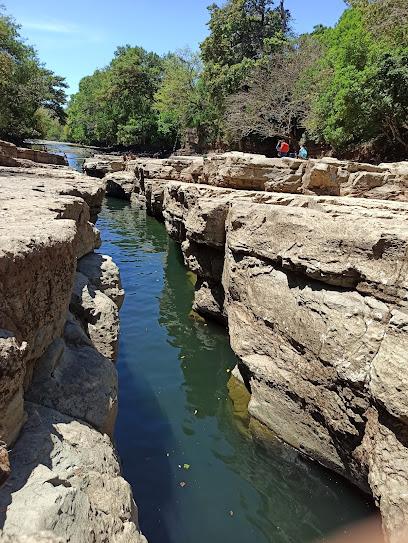
Los Ladrillos
Explore Los Ladrillos, a stunning tourist attraction in Panama, where lush landscapes and vibrant wildlife create the perfect natural escape.
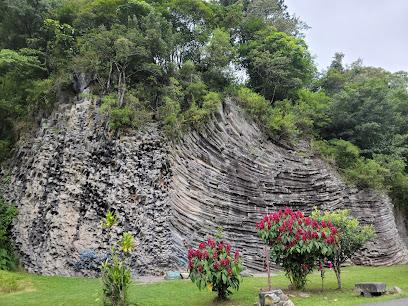
San Ramón Waterfall
Experience the breathtaking beauty of San Ramón Waterfall in Boquete, Panama, a must-visit natural attraction for every traveler.
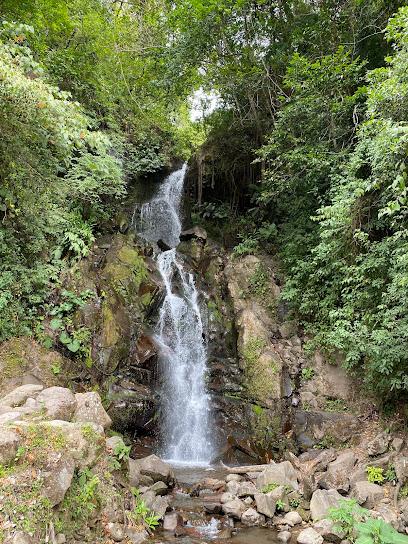
Parque Biblioteca Boquete
Explore the tranquil beauty of Parque Biblioteca Boquete, an ecological park where nature meets literature in the heart of Boquete, Panama.
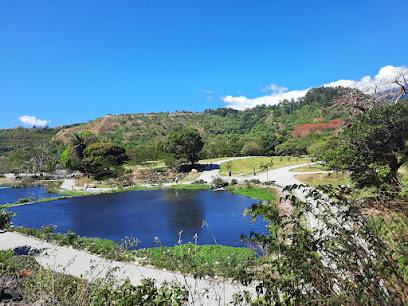
Boquete Brewing Company
Experience the best of craft brewing in Boquete, Panama, at the Boquete Brewing Company, where local flavors meet stunning mountain views.
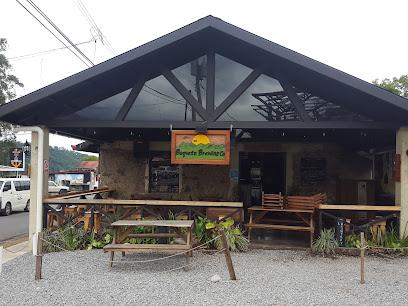
Boquete, Chiriqui. Library Park
Discover the tranquility of Boquete Library Park, a serene green space filled with lush landscapes, perfect for relaxation and cultural exploration.
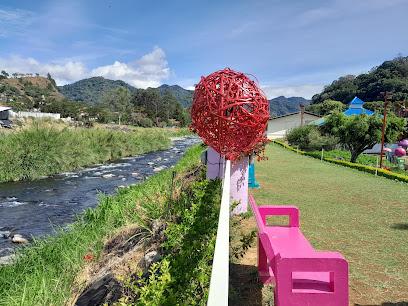
Haras Cerro Punta
Discover the beauty of equestrian culture at Haras Cerro Punta, a premier horse training and breeding facility in the stunning hills of Chiriquí, Panama.
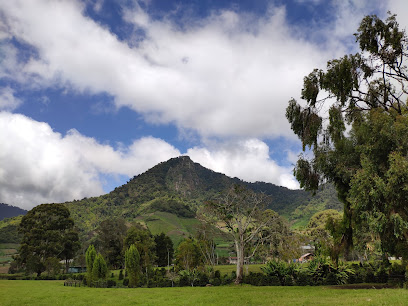
Boquete Bees and Butterflies
Explore the vibrant world of bees and butterflies in Boquete, Panama, where nature meets education and delicious honey delights await.
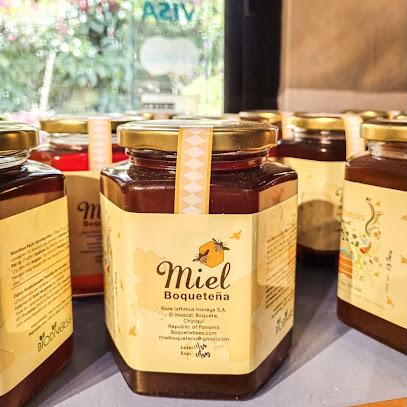
El Explorador
Explore El Explorador, a premier tourist attraction in Chiriquí showcasing culture, biodiversity, and stunning landscapes for an unforgettable experience.
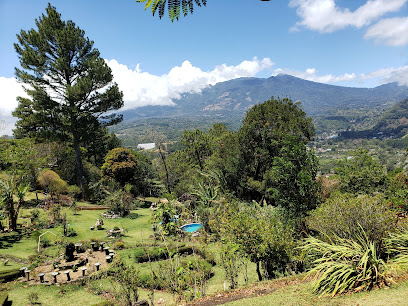
Caldera Hot Springs
Relax and rejuvenate in the healing waters of Caldera Hot Springs, a tranquil escape in Panama's stunning Chiriquí Province.
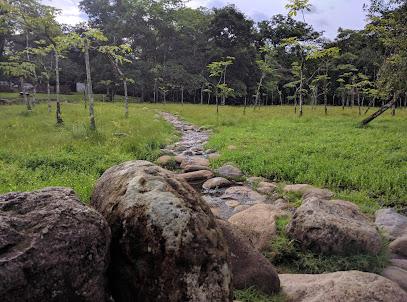
Finca Dracula
Explore Finca Dracula, a breathtaking orchid farm and botanical garden in Cerro Punta, known for its stunning biodiversity and serene natural beauty.
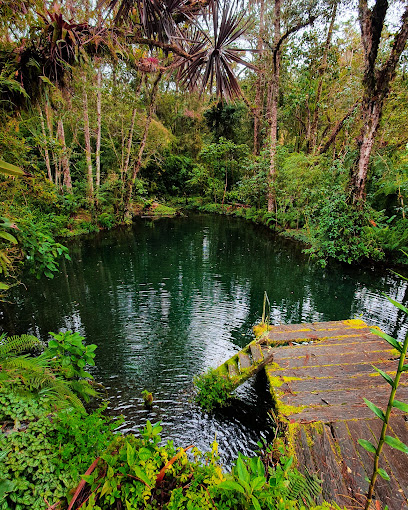
Boquete Outdoor Adventures
Discover the breathtaking beauty of Boquete with expert-guided outdoor adventures, from thrilling hikes to serene nature walks in Chiriquí Province.
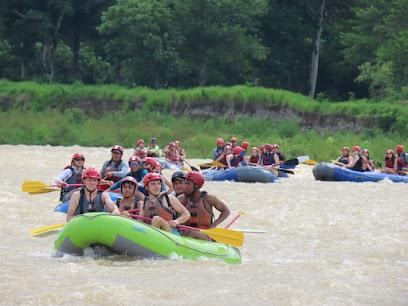
Ecoparque Cerro la Cruz
Experience breathtaking views and lush landscapes at Ecoparque Cerro la Cruz, a serene park in Boquete, Panama, perfect for nature lovers and adventurers.
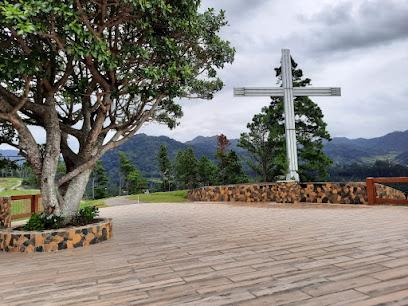
Bambito Trout Club & Park
Discover the serene beauty of Bambito Trout Club & Park, a premier fishing destination in Chiriquí Province, Panama, perfect for relaxation and outdoor fun.
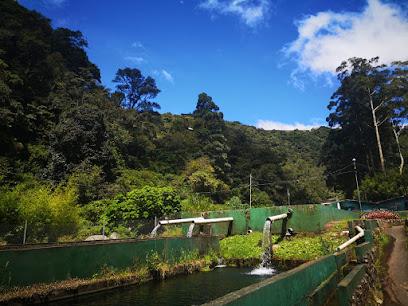
Biblioteca de Boquete
Explore the serene Biblioteca de Boquete, a cultural haven for book lovers and travelers seeking peace in the heart of Panama's lush landscapes.
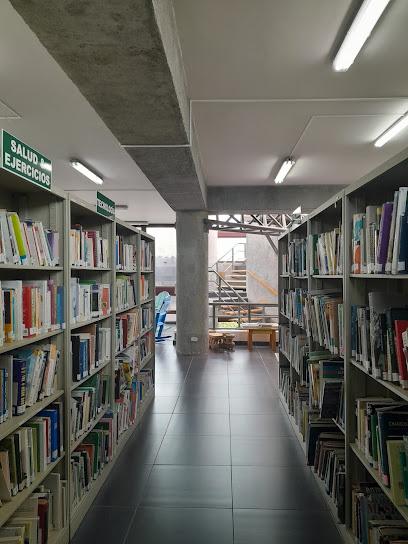
Essential places to dine
Alan-Her El Mirador
Discover authentic Panamanian flavors at Alan-Her El Mirador, where every dish tells a story amidst breathtaking views.
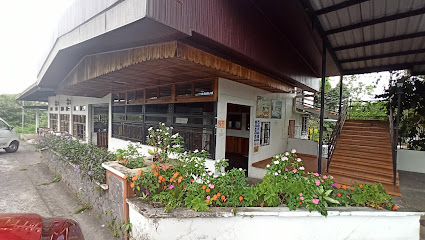
La Carbonera
Discover authentic Panamanian flavors at La Carbonera, where every dish tells a story in the heart of Volcán.
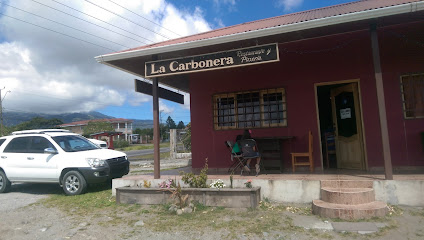
AQUI VA LA NIÑA
Discover AQUI VA LA NIÑA in Volcán: where gourmet burgers meet local charm amidst stunning Chiriquí landscapes.
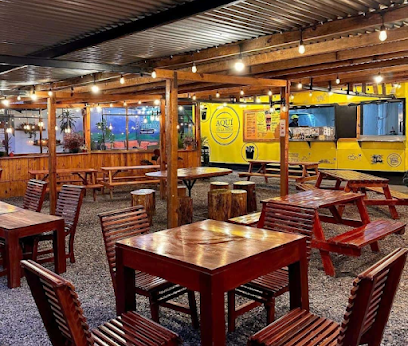
Fanny's Terrace Bistro
Discover Fanny's Terrace Bistro: A culinary gem in Volcán serving local flavors with stunning mountain views.
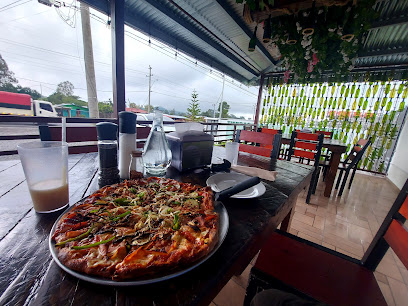
Burricos Mexican Grill
Experience authentic Mexican cuisine at Burricos Mexican Grill in Volcán - where flavor meets tradition in every bite.
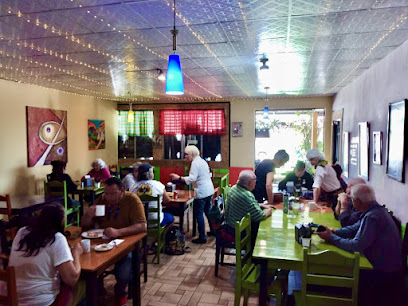
Mister Angus Bbq -Beef-burgers
Experience mouthwatering beef burgers amidst stunning views in Volcán's premier BBQ destination.
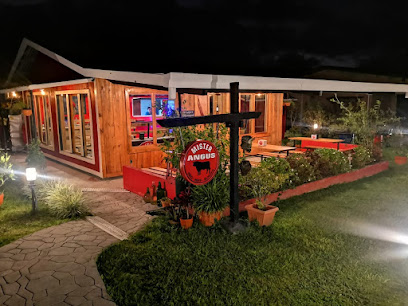
Resturante Castrejon
Discover authentic Panamanian cuisine at Restaurante Castrejon in Volcán - where fresh ingredients meet traditional recipes.
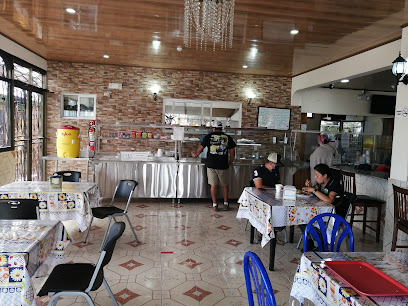
Gastronomía Original
Discover authentic Panamanian flavors at Gastronomía Original in Volcán—where local ingredients meet culinary creativity.
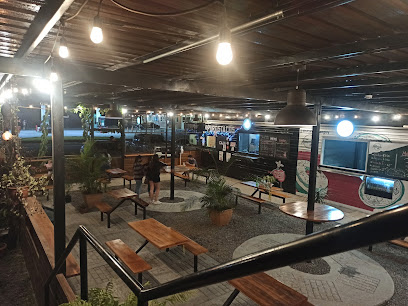
Restaurante Cerro Brujo
Discover exquisite local cuisine at Restaurante Cerro Brujo in Volcán, where original dishes meet stunning natural beauty.
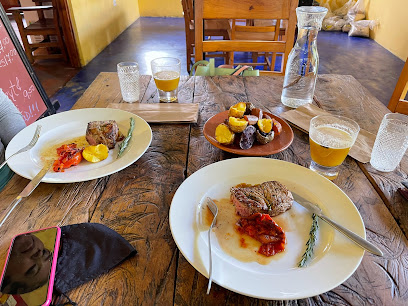
Restaurante Fénix Dorado
Experience authentic Chinese cuisine in the heart of Volcán at Restaurante Fénix Dorado - where flavor meets tradition.
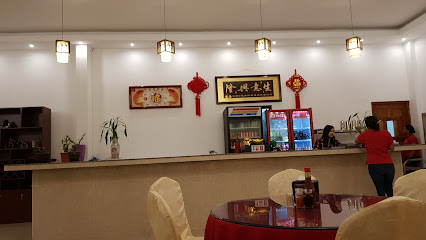
Sabores Terralteños
Discover authentic Panamanian cuisine at Sabores Terralteños in Volcán - where local flavors meet warm hospitality.
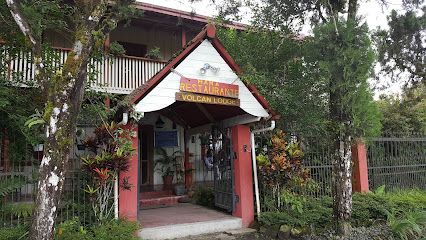
Café Mary Angel
Discover delicious flavors at Café Mary Angel in Volcán - your go-to spot for affordable dining amidst breathtaking Chiriquí landscapes.
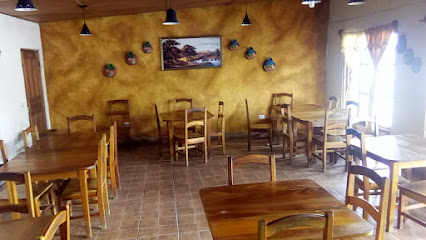
El Parce De Las Arepas
Discover authentic Panamanian flavors at El Parce De Las Arepas in Volcán - where every bite tells a story.
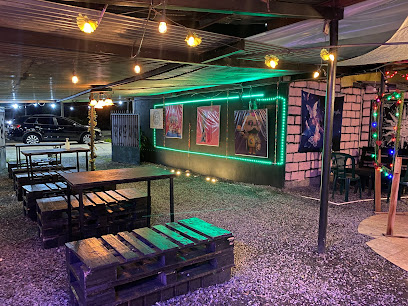
Fika's Restaurat and Coffee Shop
Discover Fika's Restaurant and Coffee Shop in Volcán – where local flavors meet exceptional coffee in a cozy setting.
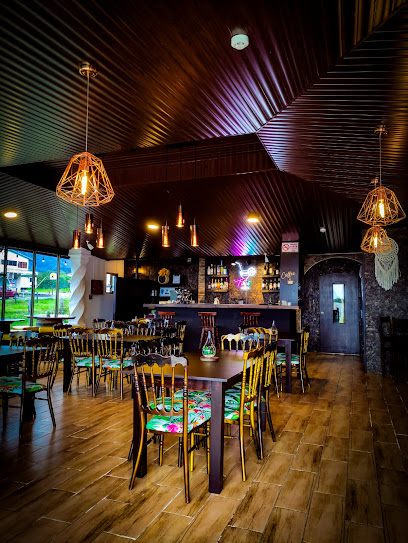
Restaurante Sagrado Corazon De Jesus
Experience authentic Panamanian cuisine at Restaurante Sagrado Corazon De Jesus in Volcán - where local flavors meet warm hospitality.
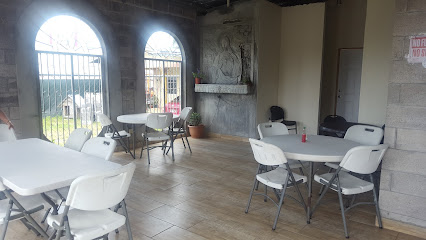
Markets, malls and hidden boutiques
SUPER MERCADO MIKE
Explore the vibrant flavors of Panama at Super Mercado Mike, a must-visit supermarket in Volcán for local produce and unique artisanal goods.
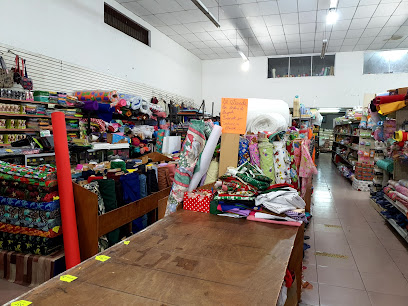
Supermercado Kinara
Experience the best of local shopping at Supermercado Kinara in Volcán, offering a vast selection of groceries and regional specialties.
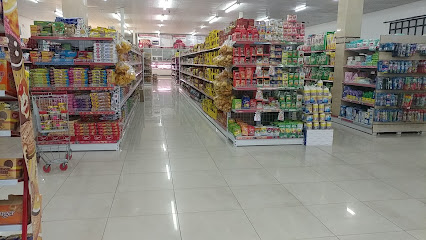
Super Remate Volcán
Explore Super Remate Volcán, a treasure trove of local goods and culture in Nueva California, Chiriquí Province, Panama.
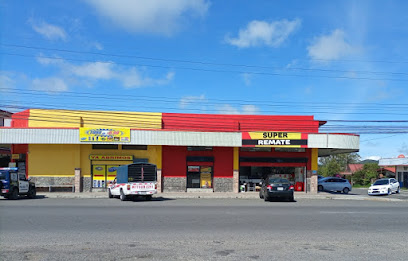
COMERCIAL VOLCAN
Explore COMERCIAL VOLCAN, a vibrant supermarket in Volcán, offering local goods and fresh produce in the heart of Chiriquí Province, Panama.
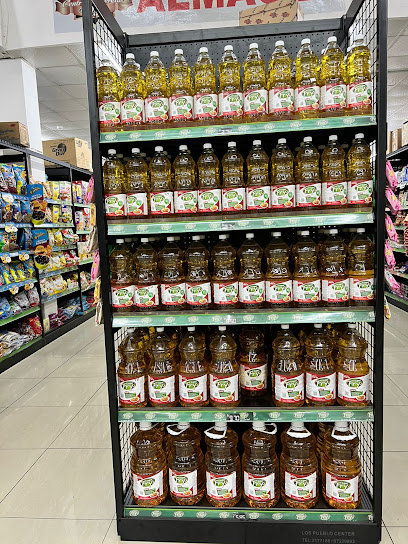
Todo a Dollar | Volcan
Discover unique finds and local treasures at Todo a Dollar in Volcán, a budget-friendly general store bursting with character.
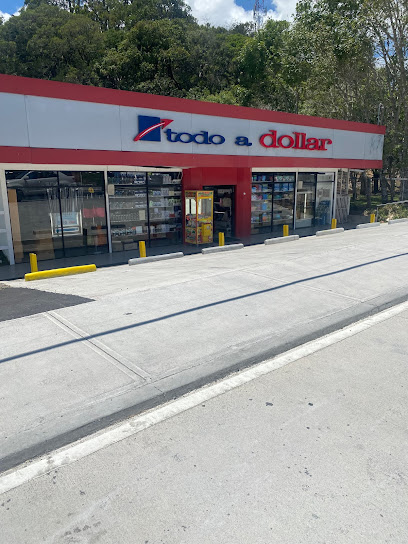
Mercadito El Corredor
Discover the vibrant flavors of Mercadito El Corredor, a gem in Volcán offering fresh, locally sourced fruits and vegetables in Chiriquí Province.
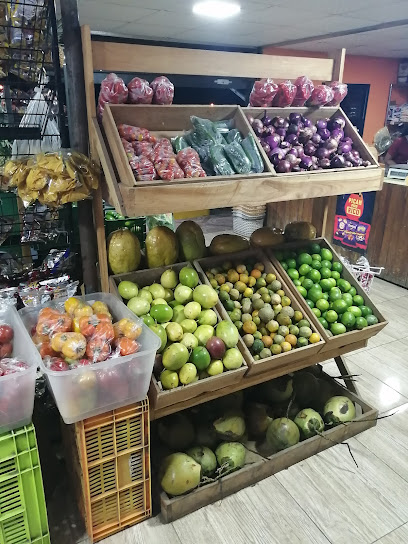
American Flowers
Discover the enchanting world of flowers at American Flowers in Volcán, where vibrant blooms meet expert craftsmanship.
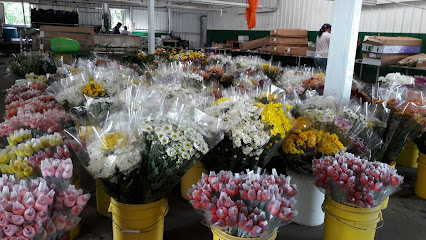
MELO VOLCÁN
Explore local culture and fresh produce at MELO VOLCÁN in Chiriquí Province, where every visit is a delightful shopping experience.
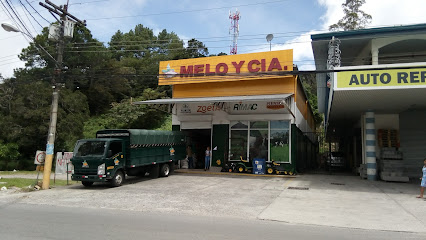
Importadora Centroamericana
Explore the rich craftsmanship of Chiriquí Province at Importadora Centroamericana, where unique home goods await your discovery.
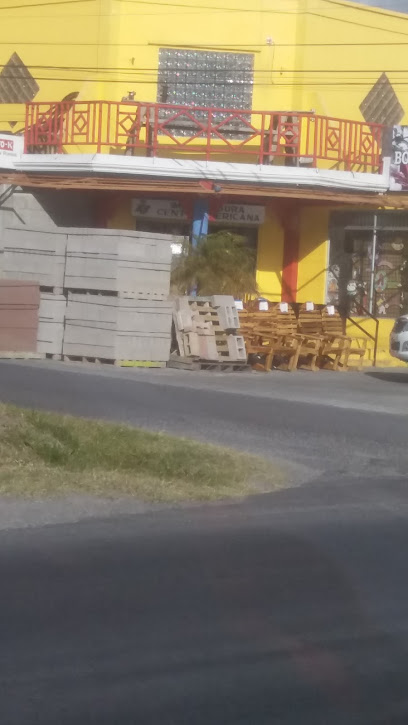
CROWN BARBER SHOP VOLCAN
Discover exceptional grooming at Crown Barber Shop Volcan, where skilled barbers meet the vibrant spirit of Chiriquí Province.
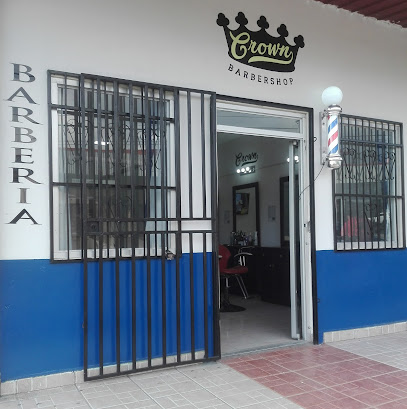
Almacen Ceyi
Explore Almacen Ceyi in Volcán: Your go-to home goods store for unique party decorations, kitchen gadgets, and hobby supplies in Chiriquí Province.
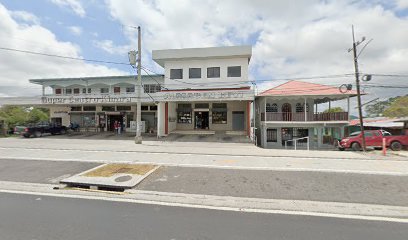
Boss Internet Shop
Stay connected while exploring the wonders of Volcán at Boss Internet Shop, where community meets convenience in a friendly atmosphere.
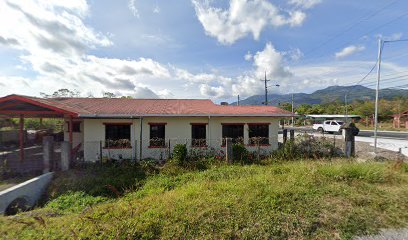
Super Romy
Discover local flavors and essentials at Super Romy, the vibrant supermarket in Volcán, Chiriquí Province, Panama.
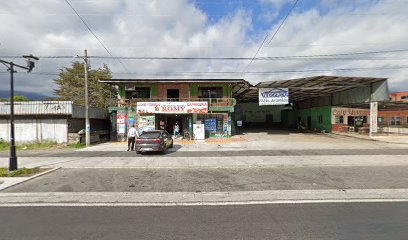
Ropa Americana Tienda Sophia
Explore Ropa Americana Tienda Sophia in Volcán for unique second-hand clothing that reflects local culture and style.
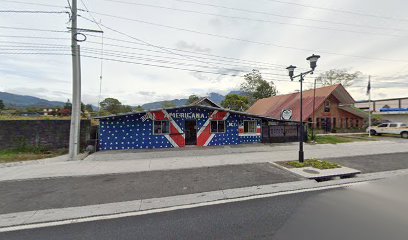
Mini Super A Y R
Discover the local flavors at Mini Super A Y R, your go-to grocery store in Volcán, Chiriquí Province, where fresh produce meets friendly service.
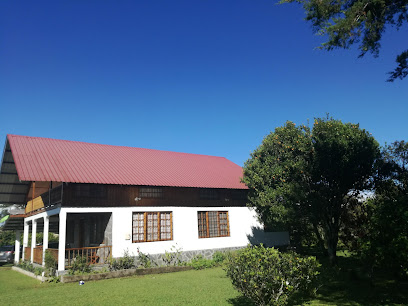
Essential bars & hidden hideouts
La Carbonera
Experience the taste of Panama at La Carbonera, where local flavors meet culinary excellence in the heart of Volcán.
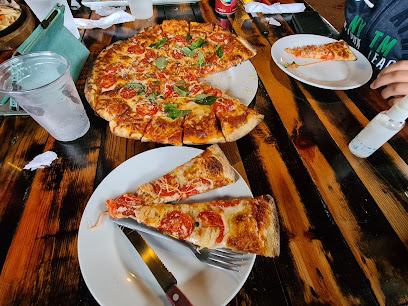
AQUI VA LA NIÑA
Savor delicious hamburgers and local flavors at AQUI VA LA NIÑA, a must-visit restaurant in Volcán, Chiriquí Province.
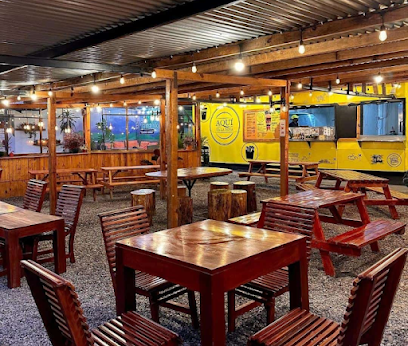
Fanny's Terrace Bistro
Discover the flavors of Volcán at Fanny's Terrace Bistro, where breathtaking views and exquisite dishes await every visitor.
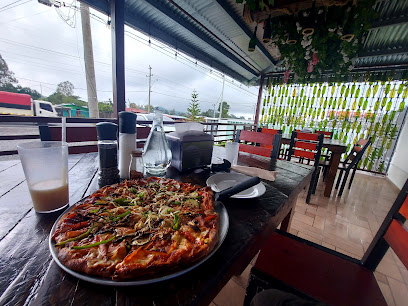
Burricos Mexican Grill
Experience the rich flavors of Mexico at Burricos Mexican Grill in Volcán, where every dish is a celebration of authentic cuisine and warm hospitality.
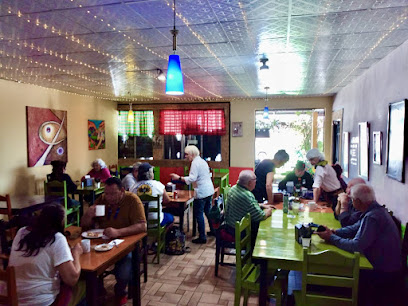
Mister Angus Bbq -Beef-burgers
Experience the authentic taste of Panama with mouthwatering beef burgers at Mister Angus Bbq in the scenic town of Volcán.
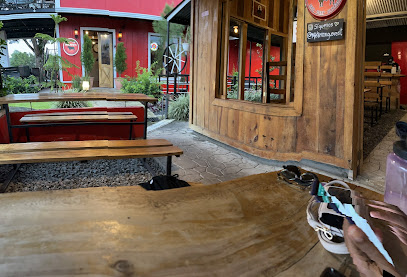
Restaurante Cerro Brujo
Experience authentic Panamanian flavors at Restaurante Cerro Brujo, a culinary delight in Volcán, Chiriquí, where local ingredients shine.
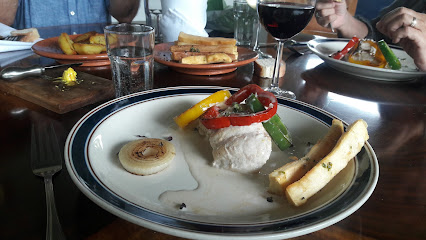
Sabores Terralteños
Discover the authentic flavors of Chiriquí at Sabores Terralteños, a culinary gem in Volcán, Panama, perfect for all food lovers.
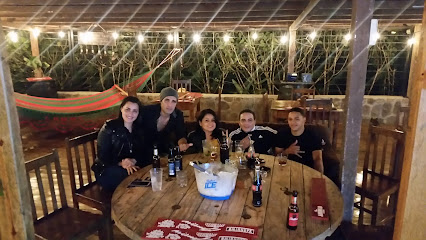
Bar/Zizic Lezcano
Discover the vibrant flavors of Panama at Bar/Zizic Lezcano, a must-visit bar and restaurant in the breathtaking Volcán region.
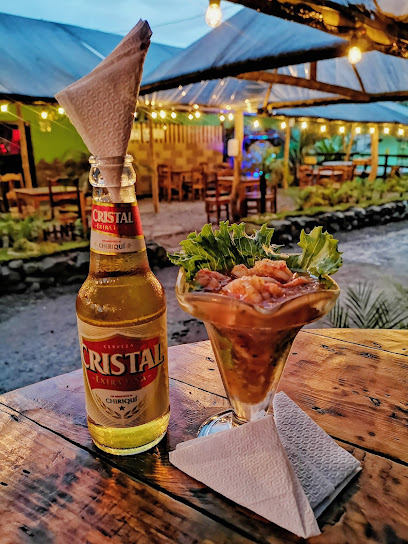
Fika's Restaurat and Coffee Shop
Discover Fika's Restaurant and Coffee Shop in Volcán for a delightful blend of local cuisine and exceptional coffee in a cozy setting.
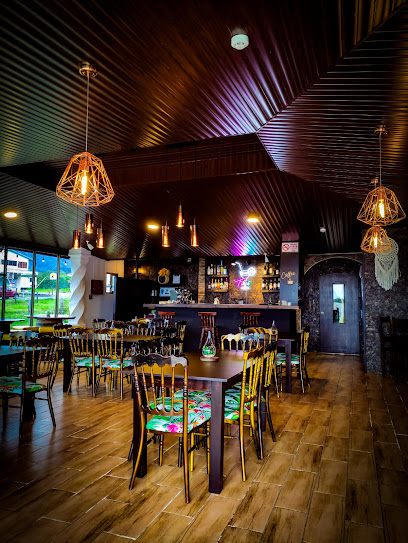
COLT 45 BAR & GRILL
Experience the vibrant flavors of Panama at Colt 45 Bar & Grill, where delicious grilled dishes meet a lively atmosphere.
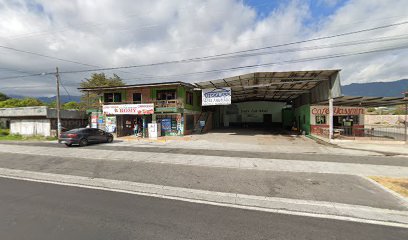
Bar Fahrenheit
Discover the vibrant nightlife at Bar Fahrenheit in Volcán, where eclectic drinks and lively music create an unforgettable experience in Chiriquí Province.
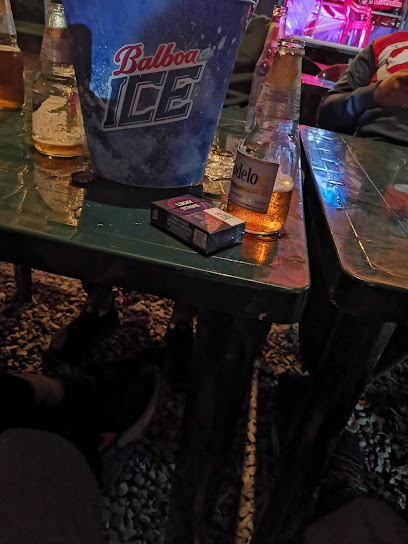
Antaño Coffee Restaurant
Discover the heart of Panama's coffee culture at Antaño Coffee Restaurant in Volcán - where tradition meets taste.

Bar y Billar Volcán
Experience the lively nightlife at Bar y Billar Volcán, where great drinks meet friendly competition in the heart of Chiriquí Province.
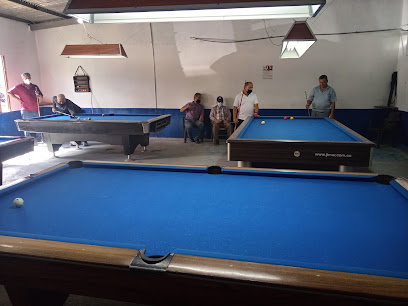
RANCHOS BAR EL PATRON
Discover the vibrant nightlife at Ranchos Bar El Patron, a cultural hub in La Concepción, where cocktails and camaraderie await.
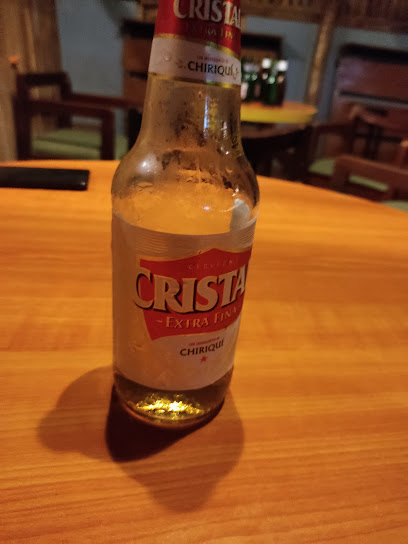
Local Phrases
-
- HelloHola
[O-la] - GoodbyeAdiós
[Ah-dee-ohs] - YesSí
[See] - NoNo
[Noh] - Please/You're welcomePor favor/De nada
[Por fa-vor/Deh nah-dah] - Thank youGracias
[Gra-see-ahs] - Excuse me/SorryPerdón/Lo siento
[Pair-dohn/Loh see-en-toh] - How are you?¿Cómo estás?
[Koh-moh es-tahs] - Fine. And you?Bien. ¿Y tú?
[Bee-en. Ee too] - Do you speak English?¿Hablas inglés?
[Ah-blahs een-gless] - I don't understandNo entiendo
[Noh en-tee-en-doh]
- HelloHola
-
- I'd like to see the menu, pleaseMe gustaría ver el menú, por favor
[May goo-stah-ree-ah ver el meh-noo, por fa-vor] - I don't eat meatNo como carne
[Noh koh-moh kahr-neh] - Cheers!¡Salud!
[Sah-loohd] - I would like to pay, pleaseMe gustaría pagar, por favor
[May goo-stah-ree-ah pah-gar, por fa-vor]
- I'd like to see the menu, pleaseMe gustaría ver el menú, por favor
-
- Help!¡Ayuda!
[Ah-yoo-dah] - Go away!¡Vete!
[Veh-teh] - Call the Police!¡Llama a la Policía!
[Yah-mah ah lah Po-lee-see-ah] - Call a doctor!¡Llama a un médico!
[Yah-mah ah oon meh-dee-koh] - I'm lostEstoy perdido
[Es-toy pair-dee-doh] - I'm illEstoy enfermo
[Es-toy en-fehr-moh]
- Help!¡Ayuda!
-
- I'd like to buy...Me gustaría comprar...
[May goo-stah-ree-ah kohm-prar] - I'm just lookingSolo estoy mirando
[So-loh es-toy mee-rahn-doh] - How much is it?¿Cuánto cuesta?
[Kwan-to kwes-tah] - That's too expensiveEso es demasiado caro
[Eh-so es deh-mah-see-ah-doh kah-ro] - Can you lower the price?¿Puedes bajar el precio?
[Pweh-des bah-har el pree-syoh]
- I'd like to buy...Me gustaría comprar...
-
- What time is it?¿Qué hora es?
[Keh oh-rah es] - It's one o'clockEs la una
[Es lah oo-nah] - Half past (10)Las diez y media
[Las dyehs ee meh-dee-ah] - MorningMañana
[Mah-nyah-nah] - AfternoonTarde
[Tar-deh] - EveningNoche
[Noh-cheh] - YesterdayAyer
[Ah-yehr] - TodayHoy
[Oy] - TomorrowMañana
[Mah-nyah-nah] - 1Uno
[Oo-noh] - 2Dos
[Dohs] - 3Tres
[Tres] - 4Cuatro
[Kwah-troh] - 5Cinco
[Seen-koh] - 6Seis
[Sehs] - 7Siete
[Syeh-teh] - 8Ocho
[Oh-choh] - 9Nueve
[Nweh-veh] - 10Diez
[Dyehs]
- What time is it?¿Qué hora es?
-
- Where's a/the...?¿Dónde está...?
[Dohn-deh es-tah] - What's the address?¿Cuál es la dirección?
[Kwahl es lah dee-rek-syohn] - Can you show me (on the map)?¿Puedes mostrarme (en el mapa)?
[Pweh-des mohs-trar-meh (en el mah-pah)] - When's the next (bus)?¿Cuándo es el próximo (autobús)?
[Kwan-doh es el proh-ksy-moh (ow-toh-boos)] - A ticket (to ....)Un boleto (a ...)
[Oon bo-leh-toh (ah ...)]
- Where's a/the...?¿Dónde está...?
History of Volcan
-
Long before the arrival of European settlers, the area of Volcan in Panama was inhabited by indigenous groups such as the Ngäbe and Buglé. These communities thrived in the fertile highlands, practicing agriculture and maintaining a rich cultural heritage that continues to influence the region today.
-
In the 16th century, Spanish explorers arrived in the region, drawn by the promise of gold and new territories. The Spanish established control over much of Panama, including Volcan, and introduced new agricultural techniques and crops, such as coffee, which would later become a staple of the local economy.
-
Volcan, as a modern settlement, began to take shape in the late 19th and early 20th centuries. Pioneering families, primarily of European descent, were drawn to the area by its fertile soil and cooler climate, ideal for farming and ranching. The town gradually developed, with the establishment of schools, churches, and markets.
-
Volcan experienced significant growth in the mid-20th century due to an agricultural boom. The region's volcanic soil proved exceptionally fertile, and farmers successfully cultivated a variety of crops, including coffee, vegetables, and dairy products. This period saw the rise of cooperative farming and the establishment of local produce markets.
-
In 1976, the Panamanian government established Volcan Baru National Park, encompassing the towering Volcan Baru, the highest peak in Panama. This move aimed to protect the unique flora and fauna of the region while promoting eco-tourism. The park has since become a significant attraction, drawing visitors from around the world.
-
Today, Volcan is a vibrant community known for its cultural diversity and natural beauty. The town continues to thrive on agriculture, particularly coffee production, while also embracing tourism. Visitors can explore local markets, enjoy the scenic landscapes, and learn about the rich history and traditions that define this unique corner of Panama.
Volcan Essentials
-
Volcan is located in the Chiriquí province of Panama. The nearest major airport is Enrique Malek International Airport in David, approximately 50 kilometers away. From David, you can take a taxi, rent a car, or catch a local bus to Volcan. The journey by road typically takes around 1 to 1.5 hours and offers scenic views of the highlands.
-
Within Volcan, the most common forms of transportation are taxis and local buses. Taxis are relatively inexpensive and can be hailed on the street or arranged by phone. Local buses, known as 'colectivos,' are another affordable option and operate on fixed routes. Renting a car is a convenient way to explore the surrounding areas and offers flexibility in your travel plans.
-
The official currency in Panama is the Panamanian Balboa (PAB), which is pegged to the U.S. Dollar (USD). U.S. Dollars are widely accepted, and you will often receive change in dollars. Credit cards are accepted in most hotels, restaurants, and shops in Volcan, but it is advisable to carry some cash for smaller establishments and local markets. ATMs are available in Volcan for cash withdrawals.
-
Volcan is generally a safe destination for tourists. However, it is advisable to take standard precautions such as avoiding walking alone at night in unfamiliar areas and keeping an eye on your belongings in crowded places. There are no specific high-crime areas targeting tourists, but staying vigilant and aware of your surroundings is always a good practice.
-
In case of emergency, dial 911 for immediate assistance. Volcan has a local police station and medical facilities including a hospital. It is recommended to have travel insurance that covers medical emergencies. For minor health issues, there are several pharmacies in town where you can purchase over-the-counter medications.
-
Fashion: Do dress comfortably and modestly. Lightweight clothing is recommended due to the tropical climate, but bring a jacket for cooler evenings. Religion: Do respect local customs, especially when visiting churches. Public Transport: Do be courteous and greet the driver when boarding a bus. Don't eat or drink on public transport. Greetings: Do greet people with a handshake or a friendly nod. Eating & Drinking: Do try local dishes and accept food and drink offerings graciously. Don't refuse hospitality, as it is considered impolite.
-
To experience Volcan like a local, visit the town’s weekly farmers' market where you can buy fresh produce and handmade goods. Engage with locals, who are often friendly and willing to share stories about the area's history and culture. Don’t miss exploring the nearby La Amistad International Park for hiking and bird-watching. Also, try the local coffee, as Volcan is known for its high-quality coffee plantations.
Trending Landmark in Volcan
-
Panamá Viejo
-
Hotel Bambito by Faranda Boutique, a member of Radisson Individuals
-
Boquete Tree Trek Mountain Resort
-
Los Cangilones de Gualaca
-
Bambuda Castle
-
San Ramón Waterfall
-
Baru Volcano National Park
-
Janson Coffee Shop
-
Boquete Bees and Butterflies
-
Volcán Barú
-
Los Brezos Boutique Hotel
-
Sitio Barriles
-
Finca Dracula
-
Lost and Found Hostel
-
The Lost Waterfalls / Las Tres Cascadas
Nearby Cities to Volcan
-
Things To Do in Boquete
-
Things To Do in David
-
Things To Do in Bocas del Toro
-
Things To Do in Puerto Viejo
-
Things To Do in Manuel Antonio
-
Things To Do in San Jose
-
Things To Do in Jaco
-
Things To Do in Chitre
-
Things To Do in Las Tablas
-
Things To Do in La Fortuna
-
Things To Do in Monteverde
-
Things To Do in Colon
-
Things To Do in Portobelo
-
Things To Do in Panama City
-
Things To Do in Guanacaste








